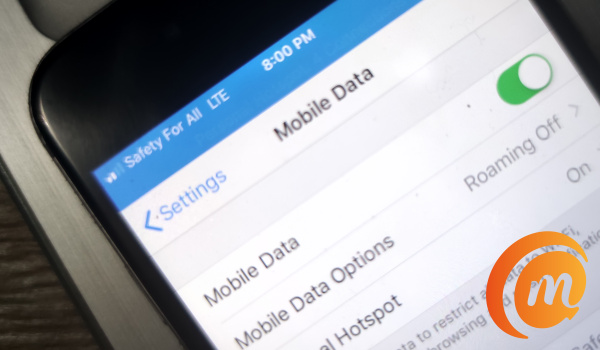Other questions you may be seeking answers to include, Under what circumstances should I turn off cellular data? Why should I should I turn off mobile data when abroad or when travelling internationally? We have answers to help you. What is mobile data? Mobile or cellular data is the Internet service from your network operator or carrier. It can be 2G (GPRS and EDGE), 3G (UMTS, WCDMA, HSDPA, HSPA, etc), 4G (LTE), or 5G. Mobile data works through your SIM card, so you can use it every where you go, so long as your network operator has service or coverage.
1. To Preserve Battery Power
One of the major reasons why mobile users turn off mobile data is to preserve battery power. Whenever your data is on, your phone does more work to keep the connection alive. This is why sometimes your smartphone gets hot if you browse or chat with it for extended periods. Cellular data drains the phone’s battery faster than if it is not turned on. So, if you are in a situation where you are away from a charger and your battery is running out, one of the ways to preserve the little battery power you have left is to turn off your mobile data. iPhone users are familiar with poor battery life. If ever stranded and running out of power, you can turn off your iPhone’s cellular data to preserve the battery and make your smartphone stay alive for longer. If you are expecting an important message in such a situation, it is a good idea to keep the data off and turn it on at intervals to check your messages.
2. Money/Cash/Budget Constraints
Modern smartphones, like Apple iPhones, Samsung Galaxy phones, Google Pixels, and others, are designed to be always on. That means when there is a data connection, it is persistently on. As long as that persistent connection is available, your Android smartphone or iPhone is constantly transmitting and receiving data. Back in the early days of smartphones, phones would stay offline even when mobile data is turned on, and they would only connect to the Internet when you initiate usage e.g. load a webpage, send an email, etc, or at intervals that you set. Android and iOS devices, however, are designed to be always on – once you turn data on, the device stays connected, synchronising information and backing up data in the background. This often means that your smartphone is burning data even when you are not actively using it. As long as cellular data is enabled, your smartphone is burning data, whether you are asleep, or you are awake and have it tucked away in your bag or pocket. Turning off mobile data can help you keep data costs low, especially if you are on a budget.
Should I turn off mobile data when abroad and roaming?
Speaking of mobile data costs, should you turn off mobile data when travelling internationally? Yes; you should, if you are roaming. Why should I should I turn off mobile data when abroad? This is because roaming costs are much higher than what you pay in your home country. You don’t want to end up burning holes in your pocket on a trip abroad. You are better off buying and using a local SIM when you arrive at your destination country than roaming data on your line. Please, turn off cellular data when roaming abroad.
3. To Get Rid Of Distractions
While modern smartphones have a “Do Not Disturb” feature that, when enabled, silences notifications. Still, an effective way to avoid distractions from Internet-based smartphone notifications is to just turn off your cellular data. Voila! No more pesky notifications from social media, email and instant messaging apps. This is great for when you need alone time to relax, or you are in a meeting, or you are driving. And it is a wrap We hope that we have been able to shed more light on why and when you should turn off cellular data. You are welcome to share your experience, as well as ask any qiestions, in the comments section below.
Don’t miss our mobile phone reviews.Follow our news on Google News.Join our WhatsApp Group, to be notified of the most important articles and deals,Follow us on Instagram, Facebook, Twitter, and YouTube.


